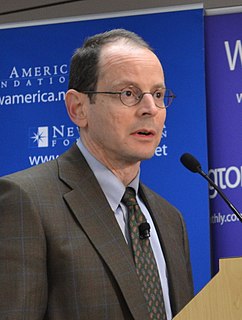Цитата Лори Хелго
Интроверсия, которую часто путают с застенчивостью, не означает скрытности или дискомфорта в общении. Интроверты не испытывают отвращения к социальной активности, а слишком ее переполняют, что объясняет, почему интроверт готов покинуть вечеринку уже через час, а экстраверт набирает обороты с наступлением ночи.
Связанные цитаты
Хотя экстремальных интровертов или экстравертов относительно немного, большинство из нас склоняются в ту или иную сторону. Если мы больше склоняемся к интроверсии, мы обычно предпочитаем меньше социальной активности, чем более экстравертных людей. Одна склонность не «лучше» другой, но в нашей культуре может показаться, что экстраверты имеют социальное преимущество.
ИНТРОВЕРТЫ особенно уязвимы к таким проблемам, как напряженность в браке, смерть родителей или жестокое обращение. Они чаще, чем их сверстники, реагируют на эти события депрессией, беспокойством и застенчивостью. Действительно, около четверти высокореактивных детей Кагана в той или иной степени страдают от состояния, известного как «социальное тревожное расстройство» — хронической и инвалидизирующей формы застенчивости.
Оставьте экстраверта в покое на две минуты, и он потянется за своим мобильным телефоном. Напротив, после часа или двух общения мы, интроверты, должны отключиться и перезарядиться. Моя собственная формула — примерно два часа в одиночестве на каждый час общения. Это не антисоциально. Это не признак депрессии. Это не требует медикаментозного лечения. Для интровертов побыть наедине со своими мыслями так же восстанавливающе, как сон, и питающе, как еда. Наш девиз: я в порядке, ты в порядке - в малых дозах.
Мне кажется, что по мере того, как мы становимся старше, мы должны становиться не менее радикальными, а более радикальными. Я имею в виду, конечно, не в каком-то политико-партийном смысле, а скорее в готовности бороться за то, во что мы страстно верим. Социальная активность и борьба за социальную справедливость часто рассматриваются как естественная деятельность молодежи, а не людей среднего или пожилого возраста. На самом деле, я не думаю, что это когда-либо было правдой.
Интроверсия, наряду с родственными ей чувствительностью, серьезностью и застенчивостью, теперь является чертой личности второго сорта, чем-то средним между разочарованием и патологией. Интроверты, живущие в идеале экстраверта, подобны женщинам в мире мужчин, которых обесценивают из-за черты, лежащей в основе их сущности. Экстраверсия — чрезвычайно привлекательный стиль личности, но мы превратили его в угнетающий стандарт, которому, по мнению большинства из нас, мы должны соответствовать.
Некоторые результаты показывают, что экстраверты лучше считывают невербальные сигналы, и связывают это с большим интересом и опытом экстравертов в социальных взаимодействиях. Другое направление исследований с использованием подсознательных изображений эмоций на лице показало, что интроверты более чувствительны к различиям, и выдвинуло гипотезу, что, возможно, именно поэтому интроверты регулируют количество поступающей социальной информации.
Facebook никогда не был просто социальной платформой. Скорее, он использует наши социальные взаимодействия так, как это делает вечеринка Tupperware. Facebook существует не для того, чтобы помогать нам заводить друзей, а для того, чтобы с течением времени превратить нашу сеть связей, предпочтений в отношении брендов и действий — наши «социальные графики» — в деньги для других.
Интроверты, напротив, могут обладать сильными социальными навыками и наслаждаться вечеринками и деловыми встречами, но через некоторое время пожалеют, что не оказались дома в пижаме. Они предпочитают посвящать свою социальную энергию близким друзьям, коллегам и семье. Они больше слушают, чем говорят, думают, прежде чем говорить, и часто чувствуют, что лучше выражают свои мысли в письменной форме, чем в разговоре. Они склонны не любить конфликтов. Многие боятся светской беседы, но любят глубокие дискуссии.
Преувеличенная чувствительность интроверта к дофамину приводит к мысли, что на публике интроверты, независимо от ее достоверности, часто чувствуют себя в центре (нежелательного) внимания, поэтому редко жаждут внимания. Экстраверты, с другой стороны, никогда не получают достаточного внимания. Итак, с другой стороны, кажется, что интроверт в некотором смысле очень внешний, а экстраверт в некотором смысле очень внутренний: интроверт постоянно чувствует слишком много «внешнего», в то время как экстраверт не чувствует достаточно «внешнего».
Социальные науки о влиянии десегрегации ясны. Исследователи неизменно обнаруживают, что учащиеся интегрированных школ — независимо от этнической принадлежности, расы или социального положения — с большей вероятностью добиваются успехов в учебе по математике, чтению и часто естественным наукам, чем в раздельных школах.
































